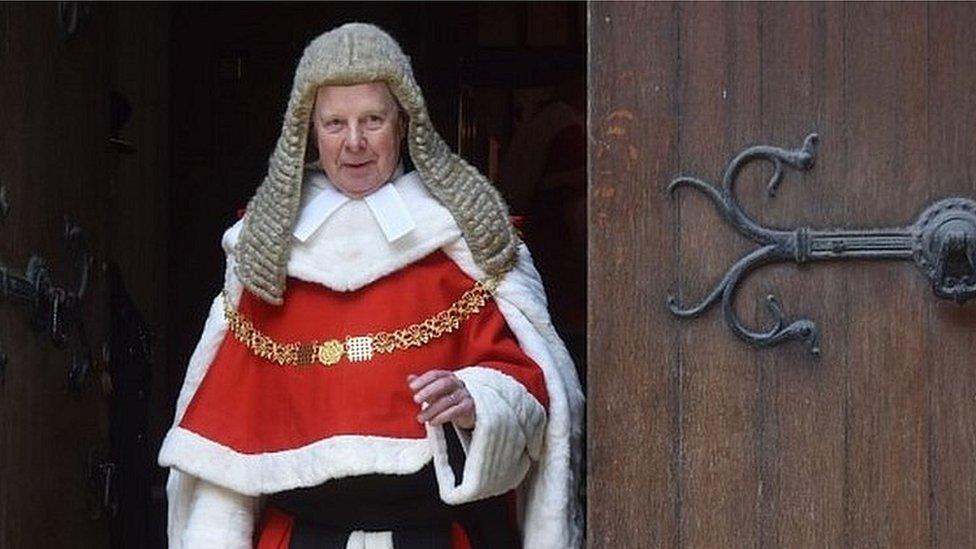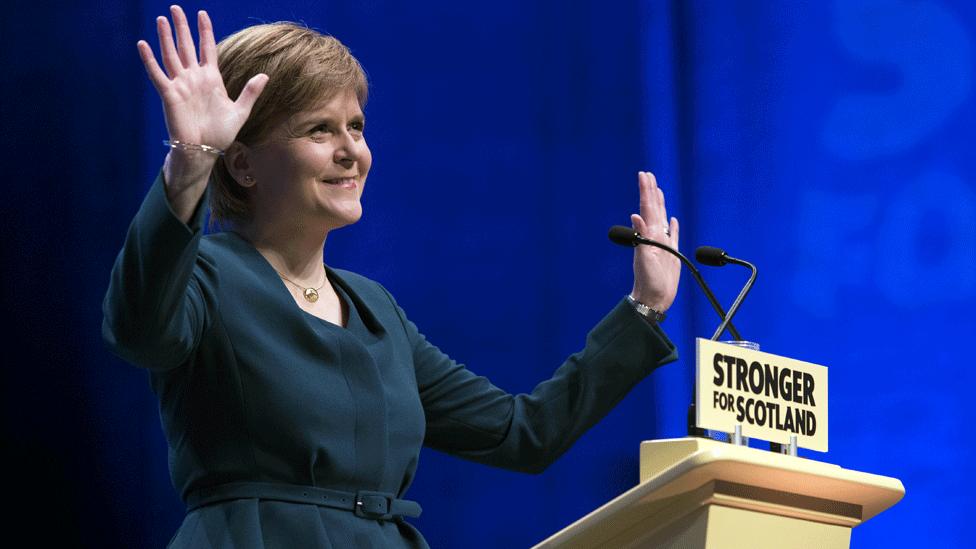Boris Johnson: Brexit doom-mongers are wrong
- Published
Boris Johnson: Brexit not a mandate for UK to 'turn in on itself'
Foreign Secretary Boris Johnson has promised that those who "prophesied doom" over Brexit will be proved wrong.
He predicted that the UK would get a trade deal "of greater value" with the European Union than it has currently as part of the single market.
Mr Johnson told the Foreign Affairs Committee that Commonwealth countries were "stepping up" to reach agreements.
But European Council President Donald Tusk said the "only real alternative to a 'hard Brexit' is 'no Brexit'"
He said that talk of "soft" Brexit - retaining some form of membership of the single market in exchange for some conceding of control over immigration - and "hard Brexit" - leaving the single market but having fuller control over migration - was purely "theoretical".
In a speech in Brussels, he warned that the process would be "painful for Britons" but added: "The brutal truth is that Brexit will be a loss for all of us."
Mr Johnson was one of the highest-profile of the campaigners to leave the European Union, which UK voters backed by 51.9% to 48.1% in a referendum in June.
Political debate in recent days has been dominated by the call by many MPs for Parliament to have a vote on the broad demands the UK government makes when it begins exit negotiations next year.
'Sturm and drang'
There has been much speculation over the UK's trading status once the country leaves the EU, with other member states' leaders saying no country can be a member of the single market unless all EU citizens have the right to live and work in that country.
Prime Minister Theresa May said at Prime Minister's Question on Wednesday that she would act on the referendum result which she said showed the British people wanted "maximum control" over immigration. She also said that in negotiations with the EU she would seek to get "maximum possible access to the single market".
Countries not in the single market can still trade with it, although the terms have to be hammered out and may include tariffs on certain goods.
During his appearance before MPs, Mr Johnson aimed to ease concerns, telling one: "You seem to think the single market is like the Groucho Club or something. We are leaving the European Union and will continue to have access to trade and services from the EU."
He also said: "Those who prophesied doom have been proved wrong and will continue to be proved wrong."
'Bungling'
There would be some "sturm und drang" (German for "storm and stress"), he predicted, but added that "we did the right thing and we can make it work".
Mr Johnson said: "I think the term 'single market' is increasingly useless.
"We are going to get a deal which is of huge value and possibly of greater value ... We are going to get the best possible deal for trade in goods and services."
Liberal Democrat leader Tim Farron seized on Mr Johnson's comments, accusing him of a "bungling performance", adding that it was "clear the only thing which is becoming 'increasingly useless' is Boris Johnson himself".
The remaining 27 EU states had "a huge interest" in agreeing a deal which would allow the UK to continue to trade its goods and services, and it was "complete nonsense" to suggest that trade links were dependent on allowing free movement of people.
Brexit meant "restoring our democracy and control of our borders and our lives and a fair bit of cash", said the foreign secretary. "But Brexit is not any sort of mandate for this country to turn in on itself and haul up the drawbridge or to detach itself from the international community."
'Russophile'
Mr Johnson said Brexit gave the UK opportunities to boost trade with economically "bounding" Commonwealth countries, with Australia, New Zealand and Malaysia "stepping up and volunteering to do these deals". EU economies, by contrast, had been "mired in low growth".
He also warned European countries not to "punish UK financial services" for Brexit, as this made no "economic sense" for them.
But, in a speech to the European Policy Centre in Brussels, Mr Tusk said: "It is useless to speculate about 'soft Brexit'.
"These would be purely theoretical speculations. In my opinion, the only real alternative to a 'hard Brexit' is 'no Brexit' - even if today hardly anyone believes in such a possibility."
On Twitter, he added that a so-called "hard Brexit" would mean "radically loosening ties with the EU".
- Published13 October 2016

- Published13 October 2016
